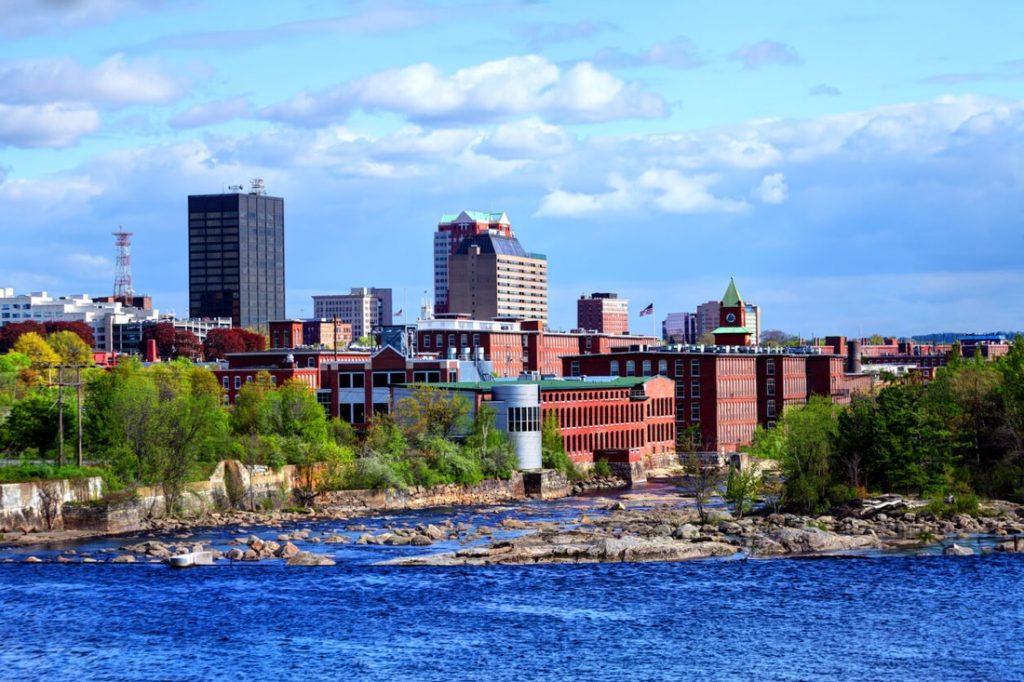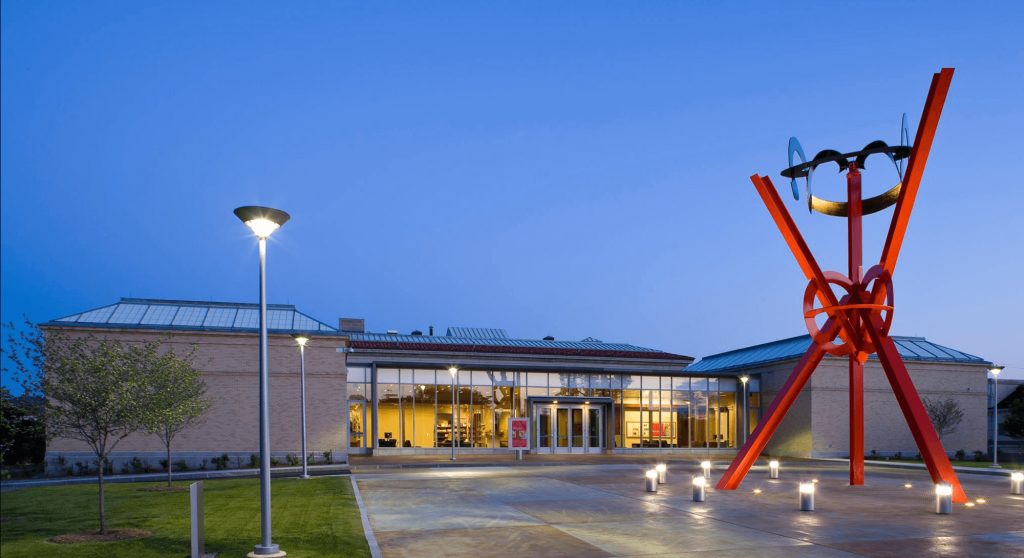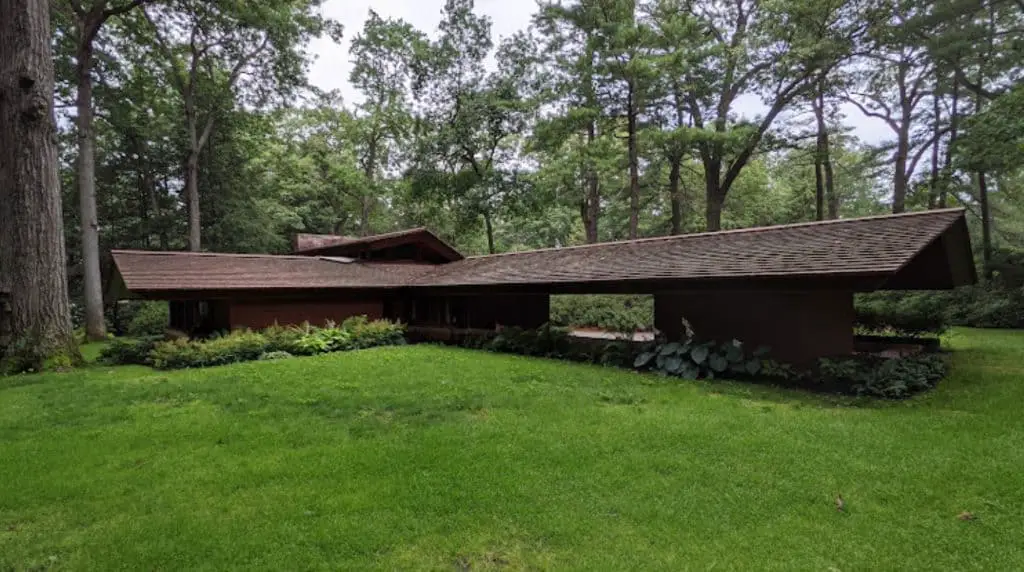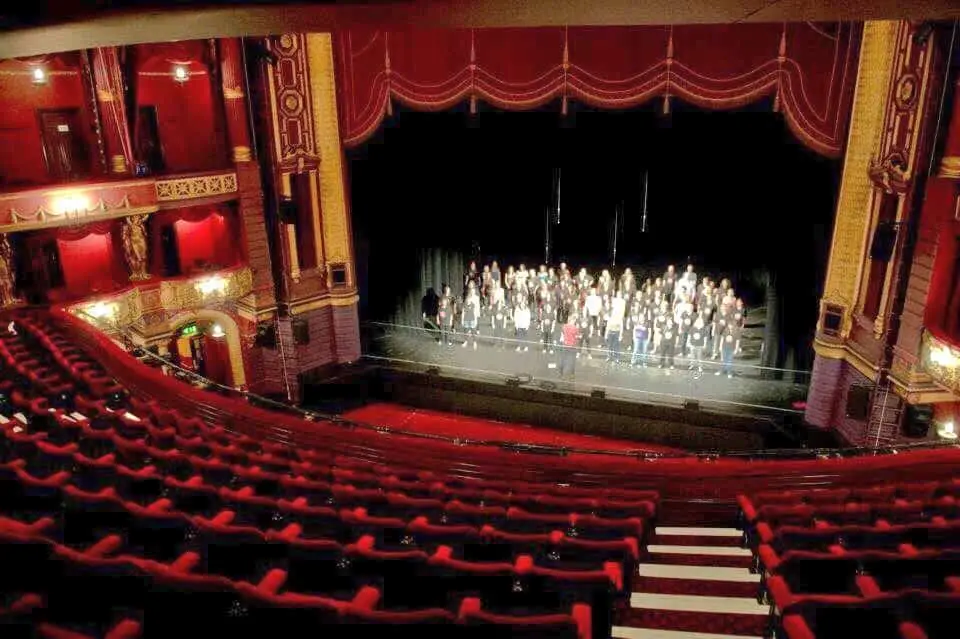New Hampshire may be known for its rural beauty, wild mountains, rugged coastline, and quaint villages more than its urban attractions. However, the Granite State has its share of cities, and many of them are well worth a visit too!
Manchester, NH, is the most populated city in Northern New England and is a great place to live, work, and play. Here is everything you need to know about Manchester NH (aka “the Queen City” or “Manchvegas”).
About Manchester, NH
Manchester, NH, has the honor of being the most populated city in Northern New England (comprising the states of New Hampshire, Vermont, and Maine), with a population of over 115,600 souls, according to the 2020 Census.
Manchester was first developed as a mill town in the early 1800s. Many of the impressive brick buildings that used to house factories for products as diverse as cotton, shoes, cigars, paper, rifles, sewing machines, and heavy machinery are still visible today, along with the elegant homes of the people they enriched during that time. Their conversion into condos, offices and commercial space is a testimony of a city with an entrepreneurial spirit that does not hesitate to reinvent itself. To this day, Manchester remains one of the most forward-thinking cities in New Hampshire, with several college and university campuses and high-tech companies calling it home.
In a time when many urban centers are losing residents, the Greatest Manchester area has become one of the fastest-growing communities in the Northeast. It consistently attracts new inhabitants thanks to its dynamic job market, central location, and affordable cost of living. Besides being a significant economic power in the region, it has also become a beacon for the arts and culture, boasting several renowned museums (see also ‘Best Museums In New Hampshire‘) and large entertainment venues.

Where Is Manchester, NH Located?
Manchester, NH, benefits from its central location at the heart of New England. It is located in Hillsborough County in Southern New Hampshire, less than one hour drive from Boston and the Atlantic Ocean. It also has easy access to many of Northern New England’s well-known vacation destinations, such as the White Mountains and the Lake Regions in New Hampshire, as well as Vermont, Massachusetts, and Maine.
Manchester is located between Nashua, NH, and Concord, NH, which are respectively the second and third largest cities in New Hampshire by population. All three cities are located along Highway I-93, which serves the White Mountains to the North and Boston to the South. The towns of Bedford, Auburn, Hooksett, Goffstown, Merrimack, Candia, Londonderry, Derry, Chester, Pembroke, Litchfield, New Boston, Amherst, Raymond, and Sandown are located within 14 miles of Manchester.
Manchester is also home to Manchester-Boston Regional Airport, the fourth-largest passenger and third-largest cargo airport in New England.
What Is Manchester NH Known For?
Manchester, NH, is the largest city in New Hampshire in terms of population and is the second most diverse city in the Granite State. If you are wondering if Manchester is a good place to live, it was ranked 60th in a list of the Best Cities to Live in America in 2022 according to U.S. News & World Report, thanks to its affordability and relatively good air quality.
Manchester is the birthplace of many famous Granite Staters, including Adam Sandler, Seth Meyers, and poet and playwriter Louis O. Coxe. It is also the only city in New Hampshire with a professional sports team: the New Hampshire Fisher Cats, a three-time Eastern League champion Minor League Baseball team.
Things To Do in Manchester NH
Manchester, NH, offers a wealth of activity (see also ‘The Best New Hampshire Escape Rooms‘) and entertainment in all four seasons, both inside and outside.

The Currier Museum of Art
Founded by former New Hampshire governor Moody Currier in 1929, this historical art museum features 11,000 works, including drawings, paintings, sculptures, and furniture by acclaimed European and American artists such as Matisse, Picasso, Monet, Wyeth, Calder, O’ Keefe, and many more.

The Zimmerman House
The only Frank Lloyd Wright home open to the public in New England is owned and operated by the Currier Museum of Art and is part of the National Register of Historic Places. Designed in 1950 for Doctor Isadore and Lucille Zimmerman, it features the original furniture and gardens, as well as displays of modern art, sculptures, and pottery. The house and grounds can be visited by guided tours.
The Millyard Museum
It is impossible to visit Manchester without noticing the imposing brick mill buildings that are such an important part of the city’s history and architecture. The Millyard Museum is located in one of the former Amoskeag mill buildings on the east side of the Merrimack River. It retraces Manchester’s past back 11,000 years, from the Native Americans who inhabited the region to the epic growth of the Amoskeag Manufacturing Company, which became one of the world’s largest textile producing companies, and the lives of the immigrants who settled in the area in the 20th century.
The See Science Center
Located in the same building as the Millyard Museum, this family-friendly science center features interactive exhibits exploring the world of science, from the mechanism of electricity to the mysteries of space or the world of dinosaurs. Do not miss the crown jewel of the museum: a re-creation of the Amoskeag Millyard made of over three million LEGO® bricks.

The Palace Theater
Modeled after New York City’s The Palace Theatre, this charming historic entertainment venue is part of the U.S. National Register of Historic Places. Since its opening in 1914, the Palace Theater has featured live performances such as plays, musicals, bands, solo artists, comedians, and more, including the likes of Harry Houdini, Bob Hope, and The Marx Brothers. It was restored to its former glory in the 1970s and, with a capacity of over 800 seats, has become one of Manchester’s most iconic theaters.
McIntyre Ski Area
It would not be New Hampshire without embracing some winter fun during the colder months. Conveniently located in the heart of Manchester in Derryfield Park, the McIntyre Ski Area features 180 feet of vertical space and includes nine trails serviced by two double chair lifts, a terrain park with rails, jumps, and a huge bowl. If skiing is not your thing, don’t miss the 400-foot tubing area with ten lanes and its own lift. The Ski Area is a favorite among residents and visitors who are not experienced skiers but offers trails up to expert levels.
Massabesic Lake
The Granite State is renowned for its beautiful lakes, and it is easy to see why when contemplating this picturesque watershed that covers over 2,500 acres of land. Since it is a drinking water source for the city of Manchester, swimming is not allowed. However, residents and visitors can indulge in other water activities such as kayaking, canoeing, boating, or exploring the 50 miles of trails. Besides, the lake is stocked with trout by NH Fish and Game, making it a favorite spot for fishermen.

The Mall of New Hampshire
The Granite State is one of five states that do not charge visitors and residents sales tax. If you want to take advantage of the added buying power, you can visit the Mall of New Hampshire, one of the largest shopping malls in the state. With over 120 stores and a food court, there is plenty to keep you busy on your next shopping spree.
The L.L. Lee Scouting Museum
The popular museum and its library, established in 1969, retrace the history of scouting in New Hampshire and around the world. It presents an assortment of unique artifacts and collectibles, as well as one of the country’s largest collections of scouting memorabilia, including books, fiction, and periodicals.
In addition, Manchester is one of the few large cities in New Hampshire. It is home to a wealth of bars and restaurants, catering to all tastes and budgets. It is also one of the places where you are more likely to catch some of the bigger acts or sports teams without having to drive down to Boston, thanks to the presence of major event centers and entertainment venues such as the Verizon Wireless Arena, the SNHU Arena, and the Northeast Delta Dental Stadium.
Manchester NH History
Manchester was settled on the land of the native Pennacook people, who used the Merrimack River as a fishing ground. Colonial settlers headed by John Goffe III arrived in 1722.
The city’s founding father, lawyer and industrialist Samuel Blodgett (April 1, 1724-September 1, 1807) conceived Manchester as an equal to its English namesake: a major urban and industrial center at the forefront of the Industrial Revolution in the United States. To do so, he opened a canal and lock system that would allow boats to transit around the Amoskeag Falls and link the developing area to Boston.
By 1846, Manchester was home to the largest cotton mill in the world, along with other industries. To power the rapid growth of the mills, flux of immigrants – particularly French-Canadians – moved to Manchester.
The decline of the textile industry and the Great Depression put an end to this rapid expansion. By the 1950s and 1960s, many of the original Millyard buildings were abandoned, and the canals were filled to make room for roads. In the 1980s and the 2000s, two waves of urban renewal contributed to giving the Millyard and downtown a new life.
Nowadays, the iconic mill buildings that once housed some of the most advanced manufacturers in the country have become commercial spaces and housing, providing residents with a thriving area where they can live, work, and play.
Facts About Manchester, NH
- Manchester, NH, is the largest city in Northern New England, with over 115,000 residents, and the second most diverse city in New Hampshire.
- Manchester is consistently recognized as one of the best cities to live in the United States.
- Manchester is home to several key industry clusters, including semiconductors, electronics, aerospace and defense, apparel and textiles, communication services, industrial machinery, and financial services.
- At their peak, the mills of Manchester’s Amoskeag Manufacturing Company were one of the largest textile factories in the world.
- Approximately 63% of the workforce in New Hampshire lives within 30 miles of Manchester.
- Manchester is the only city in New Hampshire with a professional sports team: the New Hampshire Fisher Cats
- The Manchester-Boston Regional Airport is the fourth-largest passenger and third-largest cargo airport in New England and is often considered to be one of the best mid-size airports in the country.
- As the business capital of a state with no personal income tax, no sales tax, and low professional business taxes, Manchester is one of the most small-business-friendly cities in the nation.
- Manchester has easy access to some of the most exciting opportunities the Granite State has to offer, including the Lake Region and Lake Winnipesaukee, the Atlantic Ocean and the Seacoast area, and four-season fun in the White Mountains.
Final Thoughts on Manchester, NH
If you want easy access to some of the natural beauty of New Hampshire, such as the mountains, lakes, or the ocean, but prefer an urban setting, then Manchester, NH, is the perfect place for you.
Throughout its long history, the city has been a leader in innovation in the Granite State and in Northern New England. Today, it continues to attract new residents and businesses and has established itself as one of the most significant economic and entertainment centers north of Boston.




